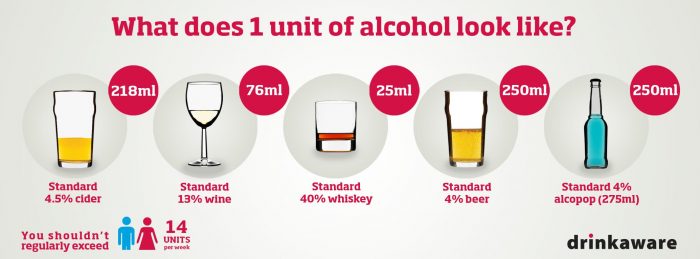Tag: Nutrition
How to Stay Healthy This Winter
When the temperature drops outside, it’s tempting to reach for comforting, high-calorie food and avoid exercise. Feeling cold, along with short days and weight gain can lead to the onset of Seasonal Affective Disorder or depression in the winter months.
Fleet Street Clinic’s Consultant Dietitian, Ruth Kander BSc (Hons) gives some practical advice on what you can do to avoid the winter blues.
Consume a Variety of Foods
By eating foods from all the food groups, you will have all the nutrients you need to stay healthy and keep winter germs at bay whilst maintaining your energy levels.
Eat Plenty of Fruits and Vegetables
These will give you vitamins and minerals to help your body fight winter bugs. Vitamin C is especially beneficial in the fight against colds and sore throats. Avoid taking supplements which contain high concentrations of vitamins which can lead to medical problems. Fruit and vegetables high in vitamin C include kiwi, citrus fruits, spinach, pumpkin and sweet potato. Zinc is also a good mineral to help fight winter infections and boost the immune system. Foods containing zinc include fish, oysters, poultry, eggs, milk, unprocessed grains and cereals. If you’re short on time, using a blender to create a vegetable and fruit drink is a great way to pack your diet full of vitamins. Try combining lettuce, cucumber, spinach, ginger, berries and a dash of orange juice and water for a zingy, low-sugar start to the day.
Keep the Pantry Cupboard Well Stocked
Good foods to store include:
- Tinned beans and lentils
- Tinned tomatoes
- Whole-wheat pasta
- Brown rice
- Couscous and noodles
- Wholegrain cereals – for example, Porridge and Weetabix
Plan Your Meals
Make soups and casseroles in advance and freeze. That way you can come home to a nutritious meal in the evenings. Simply take out of the freezer in the morning so that they are ready to heat up after work.
Watch Portion Sizes
To avoid eating too many carbohydrates, try eating your meals at the table with the TV turned off, use smaller plates and reserve half your dinner plate for vegetables. If you want more after your first serving, have some soup or more hot vegetables.
Stay Active
It’s tempting to reduce your exercise regime in the colder months. But small efforts can go a long way to help stave off winter weight gain. Going for a regular, brisk walk or using an exercise video at home can be enough to maintain your weight and stay healthy over the winter.
Drink Plenty of Fluids
Try to avoid getting dehydrated. This can make you feel overly tired and unnecessarily run down. Drink plenty of fluids throughout the day that are either low calorie or calorie-free – aim for 2 litres a day. Be aware that your daily hot drink from the coffee shop can contain 360 calories or more!
Looking for an alternative to still water? Try green tea, regular tea, herbal teas, regular coffee, hot no added sugar cordial or lemon water.
Consult Fleet Street Clinic
Ruth Kander holds a virtual clinic every Friday from 9am-2pm for individual dietitian consultations and ongoing weight management courses. Please call our reception team on +44 20 7353 5678 if you would like to request a face-to-face appointment
January is a great time to take control of your eating and help yourself to be a healthy you with the food you eat. Eating a more plant-based diet is undoubtedly recommended by many of the health professionals, however, it is essential that a healthy approach and balance is taken. Switching to a vegan diet can be unhealthy as well as healthy. In a vegan diet, it is essential to take note of particular nutrients that can get missed out which can lead to serious health consequences.
Protein
It is easy to not eat enough protein in a plant-based diet. Your body needs essential amino acids to build proteins and be healthy, so you should ensure you have a wide variety of proteins in your diet, such as:
- Soya
- Beans
- Lentils
- Seitan
- Quinoa
- Tofu
- Tempeh
- Nutritional yeast
Calcium
Calcium is an essential mineral for bone health. Insufficient calcium can lead to weak bones and bone fractures. Try and include as many calcium-containing foods each day. When choosing plant dairy alternatives try and choose those which are fortified with calcium. For milk look for at least 127mg calcium per 100g plant milk.
Foods that contain calcium include:
- Green leafy vegetables
- Tofu
- Bread
- Fortified plant milk
- Cauliflower
- Nuts
- Oranges
- Fortified plant based dairy alternatives
Iron
Iron is another essential mineral required for good health. Iron is a component of red blood cells. If we don’t eat enough iron then we can develop anaemia. This can cause severe tiredness, lethargy and generally feeling unwell.
Plant-based sources of iron include:
- Lentils
- Beans
- Tofu
- Tempeh
- Nuts
- Green leafy vegetables
- Fortified breakfast cereals
When eating these food, have with a food or drink high in vitamin C such as kiwi fruits or strawberries as these will enhance the absorption of iron. Avoid tea and coffee as this limits absorption of iron.
If you think you don’t get enough iron a simple blood test can confirm this, do check with your GP.
Vitamin B12
Vitamin B12 is the only vitamin present in animal food products.
There are some vegan products fortified with B12 such as;
- Nutritional yeast
- Yeast extract e.g., Marmite
- Breakfast cereals
If you have been vegan for some time, it may be worth considering a blood test to check your B12 levels. Discuss this with your GP.
Iodine
Iodine can be low on a vegan diet and can affect thyroid function. Sources of plant iodine include:
- Seaweed
- Iodized salt
Omega-3
Omega-3 containing foods, especially those high in alpha-linolenic acid (ALA) are involved with helping the body produce longer-chain omega-3s such as eicosapentaenoic acid (EPA) and docosahexaenoic acid (DHA).
Foods high in ALA include:
- Chia
- Hemp
- Flaxseeds
- Walnuts
- Soybeans
However, there is controversy as to whether this conversion is good enough to meet everyday needs. Some suggest a daily intake of 200–300 mg of EPA and DHA from an algae oil supplement may be a better way to prevent low levels, however, always check with your GP before starting any supplements.
Zinc
Zinc is required for overall good health but in particular for healthy hair and nails. Plant sources of zinc include:
- Beans
- Chickpeas
- Lentils
- Tofu
- Walnuts
- Cashew nuts
- Chia seeds
- Ground linseed
- Hemp seeds
- Pumpkin seeds
- Wholemeal bread
- Quinoa
By Ruth Kander BSc(Hons)RD | Dietitian
If you wish to discuss ways to maintain a healthy vegan diet or are thinking of becoming a vegan, Ruth holds a virtual clinic every Friday from 9am-2pm. Please call our reception team on 020 7353 5678 if you would like to request a face-to-face appointment
So Veganuary and Dry January are over… what happens next?
With your January healthy challenges over, you may be feeling healthier and refreshed knowing you have managed to stay vegan and/ or teetotal for 1 month. For some of you these new eating and drinking habits are here to stay but for many of you, it is now time to reintroduce meat and alcohol back into your diet safely.
A key theme to remember is everything in moderation!
What you eat and drink forms the backbone of maintaining a healthy lifestyle, which should always be the goal of any dietary alterations. Everyone’s dietary needs are different depending on their age, size and activity so there are no concrete rules to follow.
Read my top tips on how to reintroduce food and drink safely back into your diet.
Veganuary Tips:
Plant proteins are low in fat and high in fibre which is great for your gut health and cholesterol so following Veganuary these should continue to play a key part in your diet.
It is important to reintroduce food gradually and to start light. For the first few weeks stick with a predominantly plant protein diet and begin by introducing eggs and dairy initially. Move on to poultry and fish as these are easier for the body to digest than red meat but are high in healthy proteins. You will get the benefit of high-quality proteins and you won’t be missing out on iron.
Red meat is not bad for your body in moderation but it is calorie dense and the body digests it slower than any other food group. Your body won’t be used to the high protein content of red meats at the moment so introduce them in small quantities at first, building up so not to aggravate your digestive system.
Dry January Tips:
With regards to alcohol, it’s always nice to have a glass of wine with a meal or to relax at the weekend. But moderation is key. Try to keep within the limits of 14 units a week for both males and females and have frequent alcohol-free days throughout the week. It is important to remember not to have 6 alcohol-free days and save all 14 units to be consumed in 1 day, spread the 14 unit out evenly across the week.
An example of responsibly consuming alcohol could look like:
Weekly Alcohol Plan |
|
| Monday | Alcohol-free |
| Tuesday | 1 medium glass wine or equivalent |
| Wednesday | 1 medium glass wine or equivalent |
| Thursday | Alcohol-free |
| Friday | 3 medium glass wine or equivalent |
| Saturday | 2 medium glass wine or equivalent |
| Sunday | Alcohol-free |
*175ml (Medium Glass) = 2 Units / 250ml (Large Glass) = 3 Units

Drinking alcohol on an empty stomach will make you hungrier and increases the likelihood of snacking and unhealthy eating. It is much more preferable to drink alcohol with a meal as eating will distract you and make you fuller meaning you’ll consume less alcohol.
By Ruth Kander BSc(Hons)RD | Dietitian
If you wish to discuss ways to maintain a healthy vegan diet or would like more advice on how to reintroduce food back into your diet, Ruth can help. You can book a dietetics appointment online.






